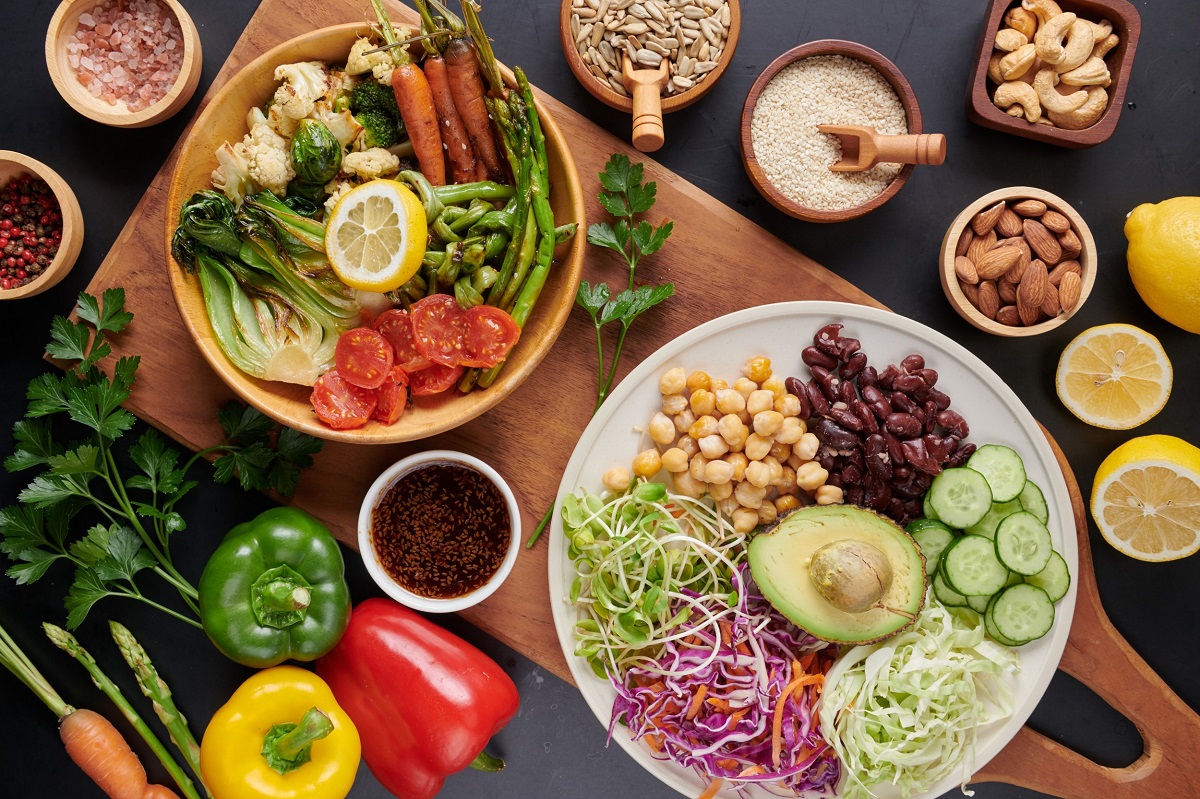Preventing Diabetes Through Diet: How To Prevent Diabetes Through Diet

Preventing Diabetes Through Diet: Diabetes, particularly type 2 diabetes, has become a global health concern, with millions of people affected by this chronic condition.
While genetics play a role, lifestyle factors—particularly diet—are critical in both preventing and managing diabetes. Making mindful food choices can significantly reduce the risk of developing diabetes and help maintain overall health.
This article will explore practical dietary strategies to help prevent diabetes, emphasizing the importance of balanced nutrition, healthy eating patterns, and the avoidance of high-risk foods.
Preventing Diabetes Through Diet
1. Focus On Whole, Unprocessed Foods

Preventing Diabetes Through Diet, A diet centered around whole, minimally processed foods is one of the most effective strategies for preventing diabetes. These foods are rich in essential nutrients, fiber, and healthy fats, which help maintain stable blood sugar levels and reduce insulin resistance.
Whole Grains Over Refined Carbs
Preventing Diabetes Through Diet, Refined carbohydrates, like white bread, pasta, and sugary cereals, cause rapid spikes in blood sugar levels, increasing the risk of insulin resistance. Instead, opt for whole grains such as:
Oats
Brown rice
Quinoa
Barley
Whole wheat
These foods are high in fiber, which slows down the absorption of sugar into the bloodstream, keeping blood sugar levels more stable.
Incorporate Plenty Of Fruits And Vegetables
Preventing Diabetes Through Diet, Non-starchy vegetables, such as leafy greens, broccoli, carrots, and peppers, are low in calories and carbohydrates but high in fiber, vitamins, and minerals. Including a variety of colorful fruits and vegetables in your diet can help reduce the risk of developing diabetes by providing antioxidants that protect cells from damage.
While fruits contain natural sugars, they also offer fiber, which helps regulate blood sugar levels. Opt for whole fruits over fruit juices, which lack fiber and can lead to blood sugar spikes.
2. Healthy Fats For Better Insulin Sensitivity
Preventing Diabetes Through Diet, Not all fats are created equal. Consuming healthy fats can improve insulin sensitivity and reduce the risk of type 2 diabetes.
Monounsaturated And Polyunsaturated Fats
These heart-healthy fats are found in foods such as:
Olive oil
Avocados
Nuts (almonds, walnuts, etc.)
Seeds (chia, flaxseeds, sunflower seeds)
Fatty fish (salmon, mackerel, sardines)
These fats help reduce inflammation and promote better insulin response, lowering the risk of diabetes.
Avoid Trans Fats
Trans fats, commonly found in processed and fried foods, baked goods, and some margarine, increase the risk of insulin resistance and contribute to weight gain, making diabetes prevention more challenging.
3. Control Portion Sizes And Caloric Intake

Preventing Diabetes Through Diet, Maintaining a healthy weight is essential for preventing diabetes. Being overweight or obese, especially when fat is concentrated around the abdomen, increases the risk of insulin resistance and type 2 diabetes.
Portion Control
Preventing Diabetes Through Diet, Eating large portions can lead to overeating and excess calorie intake, which promotes weight gain. Paying attention to portion sizes can help control blood sugar levels and prevent overeating. Use smaller plates and bowls to help manage portion sizes and avoid eating directly from packages.
Balanced Meals
Preventing Diabetes Through Diet, Balance your meals by including a variety of macronutrients—proteins, healthy fats, and fiber-rich carbohydrates. This ensures that meals are satisfying and helps prevent sudden blood sugar spikes.
4. Choose Low-Glycemic Foods
Preventing Diabetes Through Diet, The glycemic index (GI) is a measure of how quickly a food causes blood sugar to rise. Foods with a high glycemic index, such as white bread and sugary snacks, cause rapid increases in blood sugar, leading to insulin resistance over time. Consuming low-glycemic foods can help prevent these spikes and improve blood sugar control.
Examples Of Low-Glycemic Foods
Whole grains (oats, quinoa, brown rice)
Non-starchy vegetables (spinach, broccoli, zucchini)
Legumes (lentils, chickpeas, black beans)
Berries (blueberries, raspberries)
Greek yogurt
Nuts and seeds
Incorporating these foods into your daily diet can help prevent the development of diabetes.
5. Increase Fiber Intake

Preventing Diabetes Through Diet, A high-fiber diet has numerous benefits, particularly in preventing diabetes. Fiber slows down digestion and the absorption of sugar into the bloodstream, keeping blood sugar levels more stable.
Soluble Fiber
Soluble fiber, found in foods like oats, legumes, and fruits, dissolves in water and forms a gel-like substance in the gut. This slows down digestion and can help lower blood sugar levels. Studies have shown that diets high in soluble fiber can reduce the risk of diabetes.
Insoluble Fiber
Preventing Diabetes Through Diet, Insoluble fiber, found in whole grains, vegetables, and nuts, helps maintain bowel regularity and promotes gut health. Both types of fiber are essential for maintaining a healthy weight and reducing the risk of insulin resistance.
6. Limit Sugary Beverages And Processed Foods
Preventing Diabetes Through Diet, Sugary drinks and processed foods are some of the most significant contributors to insulin resistance and diabetes. These foods are high in refined sugars, unhealthy fats, and empty calories, all of which increase the risk of type 2 diabetes.
Avoid Sugary Beverages
Drinks like soda, fruit juices, and energy drinks are loaded with added sugars that cause rapid blood sugar spikes. Replace sugary drinks with water, herbal teas, or sparkling water with a splash of lemon for flavor.
Minimize Processed Snacks
Preventing Diabetes Through Diet, Processed snacks, such as chips, candy, and baked goods, are often high in refined carbohydrates and unhealthy fats, which contribute to weight gain and increase the risk of diabetes. Opt for healthier snack alternatives like nuts, seeds, fruits, or yogurt.
7. Stay Hydrated

Preventing Diabetes Through Diet, Drinking enough water is essential for maintaining healthy blood sugar levels. Dehydration can lead to higher blood sugar levels as the body produces more glucose when it is dehydrated. Water is the best choice for staying hydrated and controlling blood sugar levels.
Limit Sugary Drinks
As mentioned earlier, sugary drinks raise blood sugar levels and increase the risk of diabetes. Stick to water or unsweetened beverages to prevent these spikes.
8. Time Your Meals Properly
Preventing Diabetes Through Diet, In addition to what you eat, when you eat also matters. Timing your meals can help regulate blood sugar levels and prevent overeating.
Eat Regularly
Skipping meals can cause blood sugar levels to fluctuate, leading to overeating later in the day. Eating balanced meals and snacks at regular intervals can help maintain stable blood sugar levels throughout the day.
Consider Intermittent Fasting
Preventing Diabetes Through Diet, Intermittent fasting, where meals are eaten within a specific time window, has shown promise in improving insulin sensitivity and promoting weight loss, both of which can help prevent diabetes.
9. Limit Alcohol Consumption

Preventing Diabetes Through Diet, Excessive alcohol consumption can lead to weight gain, increase blood pressure, and impair insulin sensitivity, all of which raise the risk of type 2 diabetes. If you choose to drink alcohol, do so in moderation, and opt for lower-sugar options such as dry wine or spirits mixed with water.
Final Thought
Preventing Diabetes Through Diet, Preventing diabetes through diet is achievable by making smart, sustainable changes to daily eating habits. By focusing on whole foods, incorporating more fiber, choosing healthy fats, and avoiding sugary and processed foods, you can significantly reduce the risk of developing type 2 diabetes. Additionally, maintaining a healthy weight, controlling portion sizes, and being mindful of meal timing all play crucial roles in diabetes prevention. Small, consistent changes can lead to long-term health benefits and lower the chances of developing this chronic condition.
Also Read:
Excessive Consumption Of Oats And Bananas Could Lead To Type 1 Diabetes In Children
Harvard Researchers: High Red Meat Consumption Linked To Increased Risk Of Type 2 Diabetes
Risk Of Diabetes In Boys: Drinking Concentrated Fruit Juice Increases The Risk Of Diabetes In Boys
Drinking From Plastic Bottles Increases The Risk Of type 2 Diabetes




